Dear Julia,
So excited to see you for Christmas! Thought this could be the perfect time for Godot to send a weird, unsolicited gift, before I turn up with real ones.
I always liked the artist Corrie Baldauf’s Infinite Jest Post-It project, which tracks the mention of colour:
Godot thought he’d get you something similar, a kind of bouquet made from Wild Places, a new selection of Katherine Mansfield stories, by cutting flowers from it:
At the Corner of Oxford Circus Rosabel bought a bunch of violets and that was practically the reason why she had so little tea—
Such an epic use of a dash. Immediately you’re in the headspace of someone dashing about town. All Rosabel wants is a decent meal and a sit down, she’s only had ‘a scone and a boiled egg’, ffs.
Meanwhile, Mansfield has her cake and eats it. On the bus ride home, Rosabel is annoyed by a girl reading a sentimental novel, ‘mouthing the words in a way that Rosabel detested, licking her first finger and thumb each time that she turned the page.’ But by the end of the story Rosabel is daydreaming herself out of her tiring existence and into a scene that sounds a lot like the book. Mansfield shows us how tragic the role of fiction and fantasy can be in our lives while dreaming up her own.
She wrote this story when she was just 19.
Excuse me:
Another story starring tiredness, The Child-Who-Was-Tired, is unfortunately way too dark for the bouquet. It’s quite Gothic actually, including ‘a twisted mass of dahlia roots — that looked as real as though they were fighting one another’, roots that embody brutal power struggles and the ultimately rigid structure of society. We’ll put them to one side.
Similarly, I think we can steer clear of the pines in The Luft Bad (air bath? I think). I found out Mansfield ‘herself had been a “cure guest” in 1909 at the Bavarian spa Bad Wörishofen’. She definitely knows how to put the reader there. ‘From the pine forest streamed a wild perfume, the branches swayed together, rhythmically, sonorously’ — so good, isn’t it? There’s this anaesthetised ambivalence. You just know Julianne Moore’s playing Mansfield in the short film.
I popped into The Woman at the Store for ‘double poppies and sweet-williams’.
In The Swing of the Pendulum, flowers become the pivot for Viola’s veering consciousness. ‘The only thing of life in the room was a jar of hyacinths […] exuding a sickly perfume from its plump petals’. Gross. Paragraphs later comes the inevitable mood swing: ‘Viola ran over to the table and put her arms round the jar of hyacinths. "Beautiful! Beautiful!" she cried at the scent.’ Creative writing students, read it and weep.
The Wind Blows is a little hurricane of a story, where a windy day stands in for a teenage girl’s flightiness. ‘Marie Swainson runs into the garden next door to pick the "chrysanths" before they are ruined’. Cute. Later, the narrator likes the smell in her piano teacher’s room of ‘stale smoke and chrysanthemums’. What to make of them, though? Idk, the story is told in such fidgety prose, it’s like the metaphor won’t sit still either.
In contrast, A Dill Pickle has flowers at its centre — literally on the table between two former lovers sits ‘a Japanese vase of paper daffodils’. Isn’t that gorgeous, the speedy syllables in the words ‘Japanese’ and ‘paper daffodils’ counterweighted by the long ‘vase’? Here, the flowers seem overdetermined, folded in with language; ever the characters start playing with them.
‘[…] whenever it is very fine and warm, and I see some bright colours–it's awfully strange–I hear your voice saying: “Geranium, marigold, and verbena.” And I feel those three words are all I recall of some forgotten, heavenly language. . . . You remember that afternoon?’
‘Oh, yes, very well.’ She drew a long, soft breath, as though the paper daffodils between them were almost too sweet to bear.
It’s so cool how language itself gets folded in so that the reader is implicated in the woman’s performance; we’ve agreed to play pretend with pieces of paper too! As such, it is hard to say exactly how melodramatic she is being since we can almost smell the daffodils ourselves. The encounter is all about the gap between the fantasy of their relationship — what it was, what it still might be — versus the reality of how things actually are. Flowers and language are the tools which make that gap expand and contract.
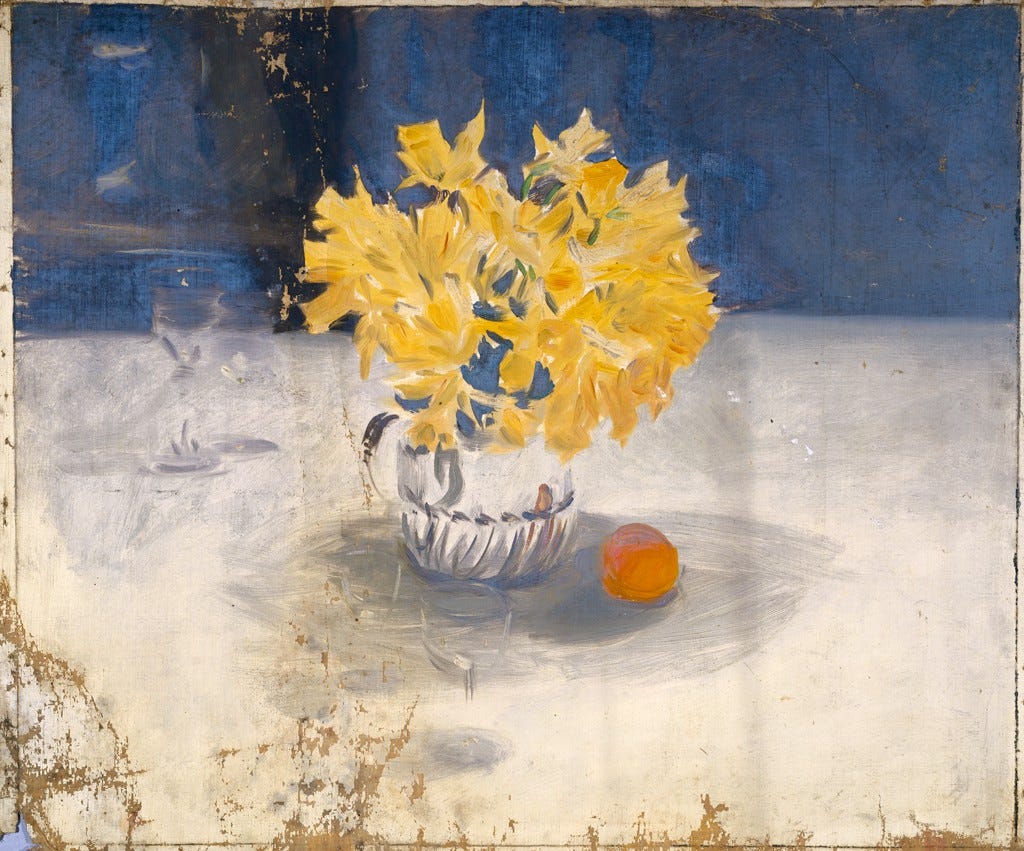
‘The amount of minute and delicate joy I get out of watching people and things… is simply enormous,’ Mansfield wrote in her journal; ‘the detail of life, the life of life.’ Maybe that’s why reading Mansfield observing things is such a delicate joy, too. In Prelude, a family is moving home and Kezia observes as the place is dismantled, details stacking on top of one another like boxes in the removal buggy.
The dining-room window had a square of coloured glass at each corner. One was blue and one was yellow. Kezia bent down to have one more look at a blue lawn with blue arum lilies growing at the gate, and then at a yellow lawn with yellow lilies and a yellow fence.
It’s far too almost-Christmas to go into any sort of detail about the use of detail. This story also describes the garden as bonzer (‘boncer’) — lol.
Mae will attest to the fact that we were set Bliss for an MA seminar the same week I was falling so sillily for Emily I could have combusted, it was too much, ‘as though you’d swallowed a bright piece of that late afternoon sun and it burned in your bosom, sending out a little shower of sparks into every particle, into every finger and toe?…’
Love how excessive that it is right down to the punctuation — chuck in an ellipses after the question mark, gorl, you do you!
Of course, it’s really all about that ‘pear tree in fullest, richest bloom’. It eclipses everything such that the reader can’t help but gloss over how ‘Down below, in the garden beds,’ the more forgettable ‘red and yellow tulips, heavy with flowers, seemed to lean upon the dusk’. To lean upon it? Like anonymous half-cut spectators at a bar? Great stuff. But frankly everything sounds great once you’ve swallowed that late afternoon sun.
Alright-y, I make that:
violets (The Tiredness of Rosabel)
‘double poppies and sweet-williams’ (The Woman at the Store)
hyacinths (The Swing of the Pendulum)
"chrysanths" (The Wind Blows)
paper daffodils; Geranium, marigold and verbena (A Dill Pickle)
blue arum lilies […] yellow lilies (Prelude)
red and yellow tulips (Bliss)
Would that even look good? Haha. Sounds mad.
Oh, and almost forgot The Garden Party and the roses. ‘Hundreds, yes, literally hundreds, had come out in a single night; the green bushes bowed down as though they had been visited by archangels.’
Outwageous.
I’ve also started making a list of all the TV and films we might have missed this year, and very much looking forward to a binge. See you in the Spritz Zone mañana.
Lots of love,
Godot x

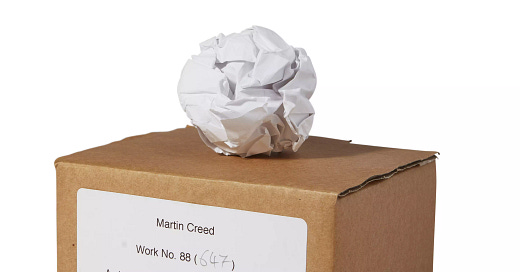



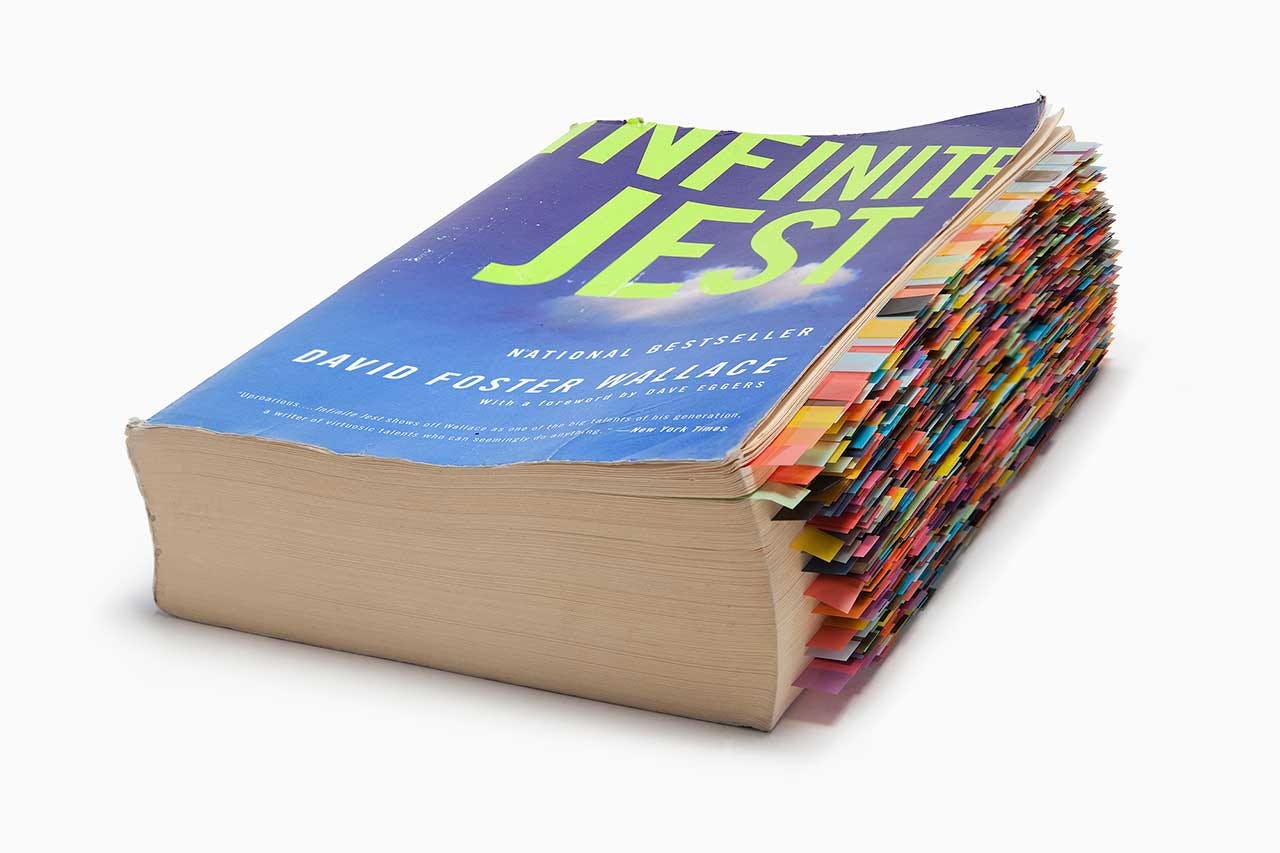
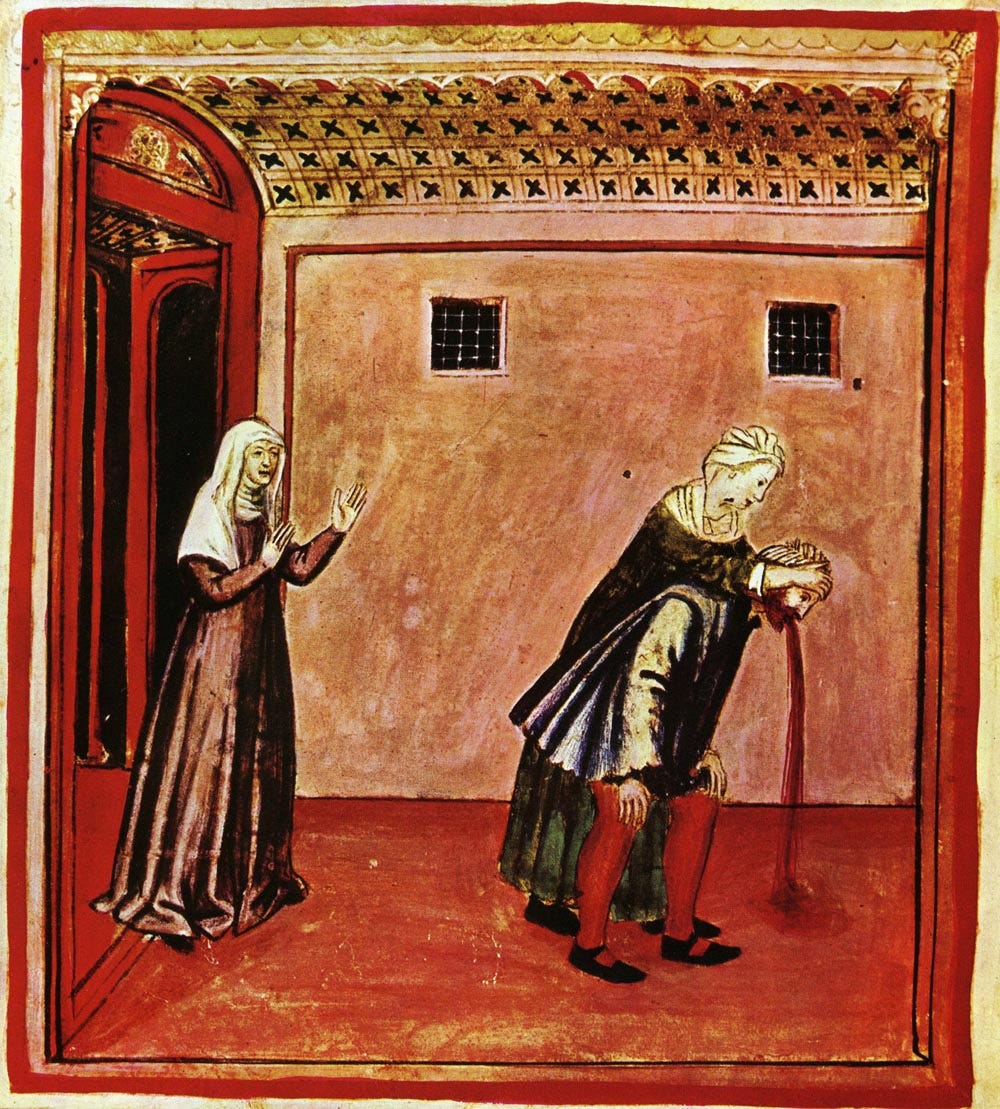
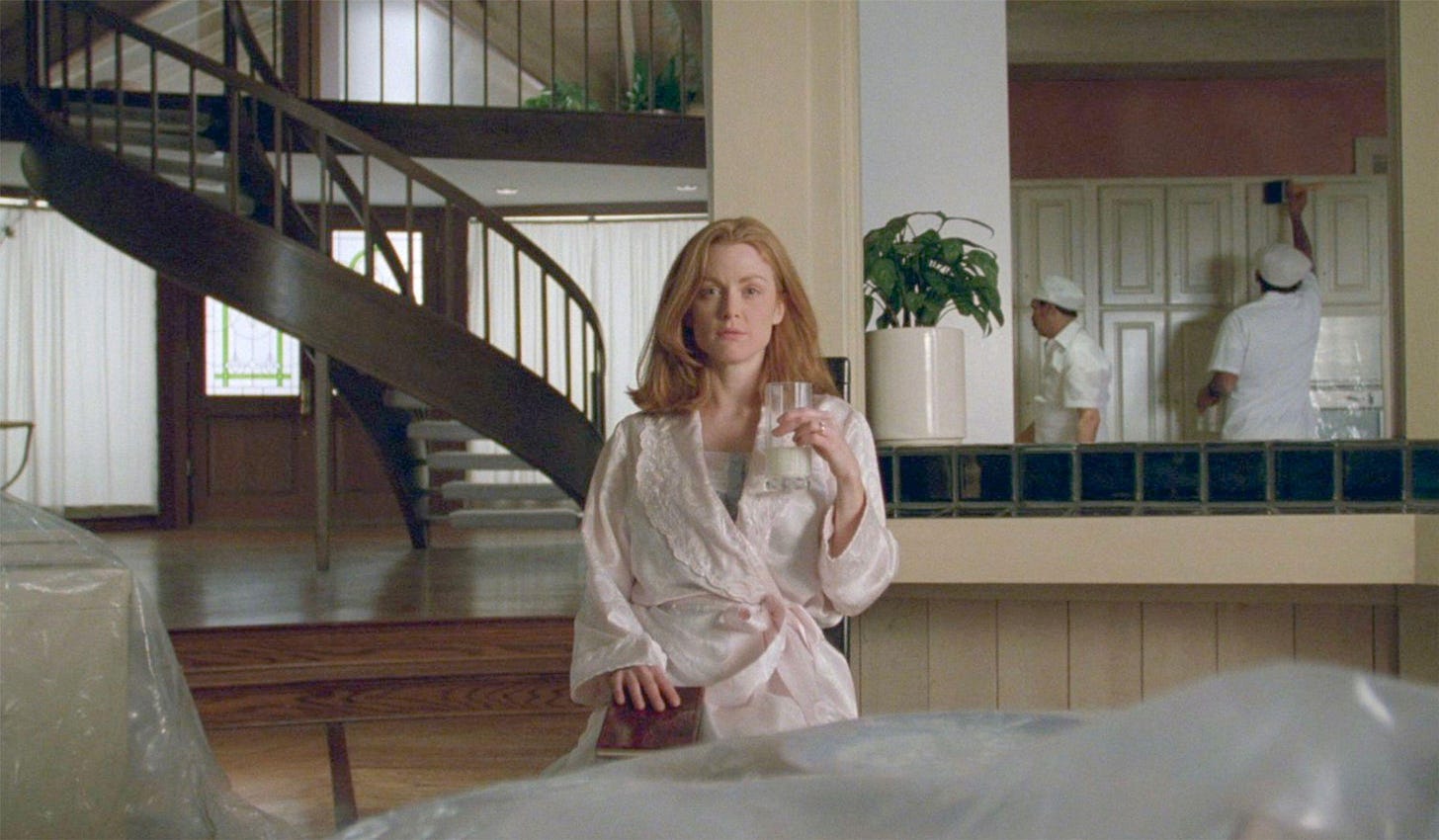
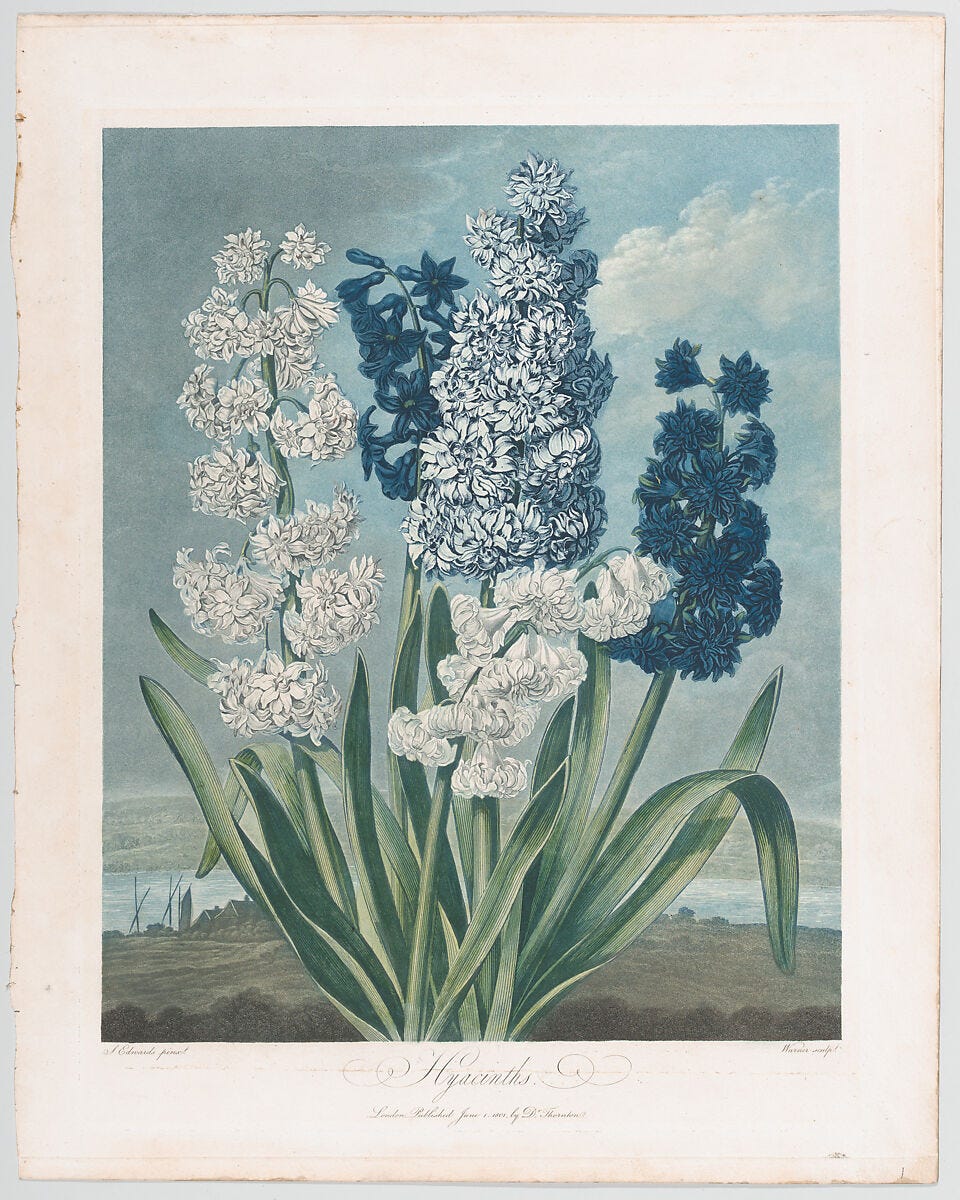
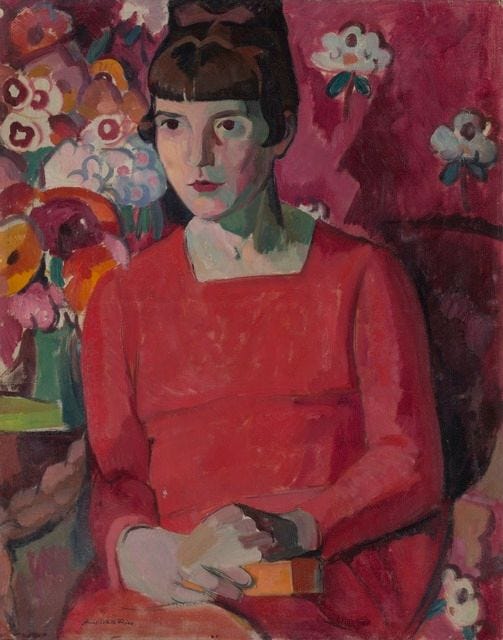
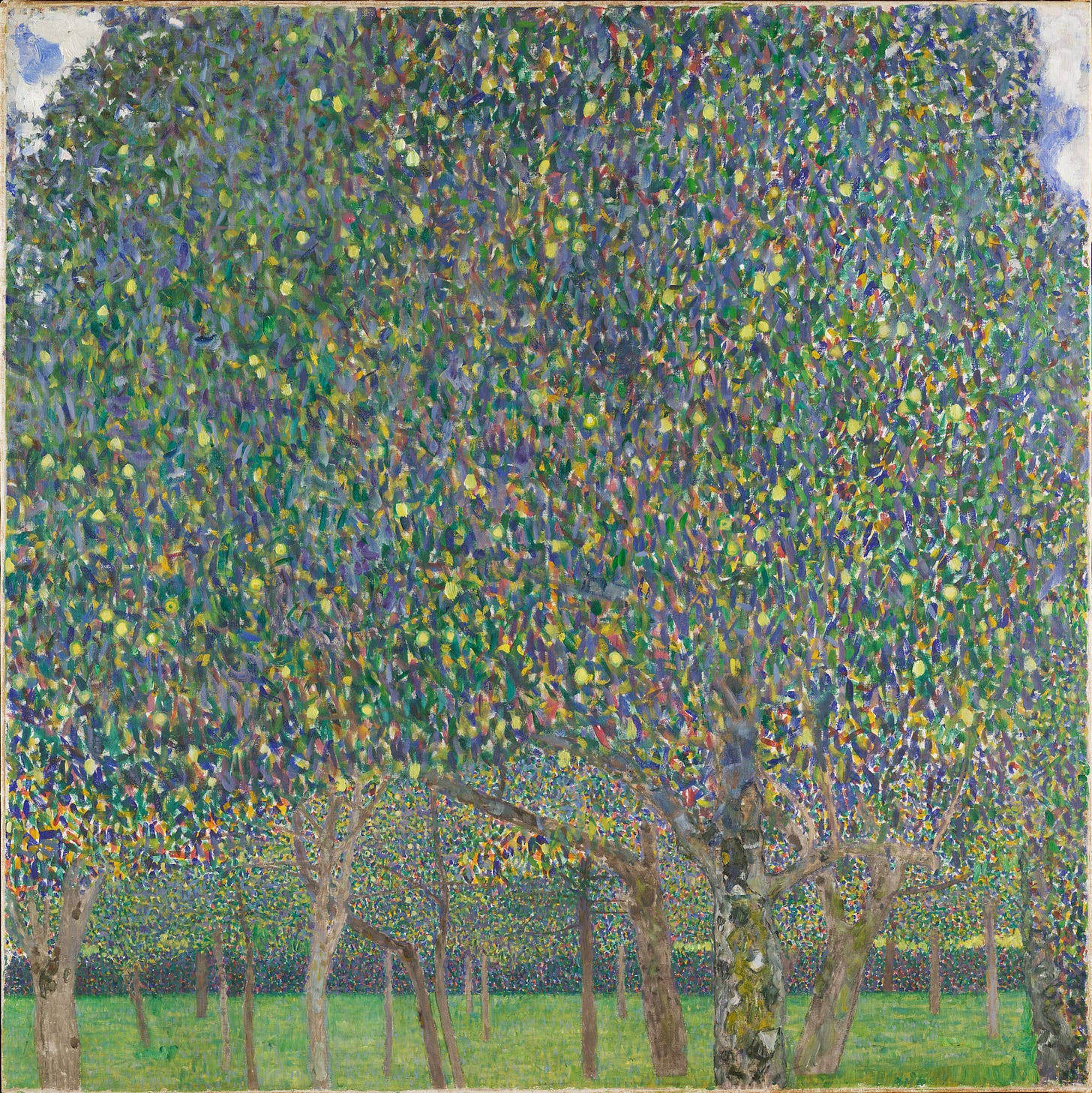
Love this exploration of color!
Too lovely for words. And yet there they are, words, and you make flowers of them. Xx Roo